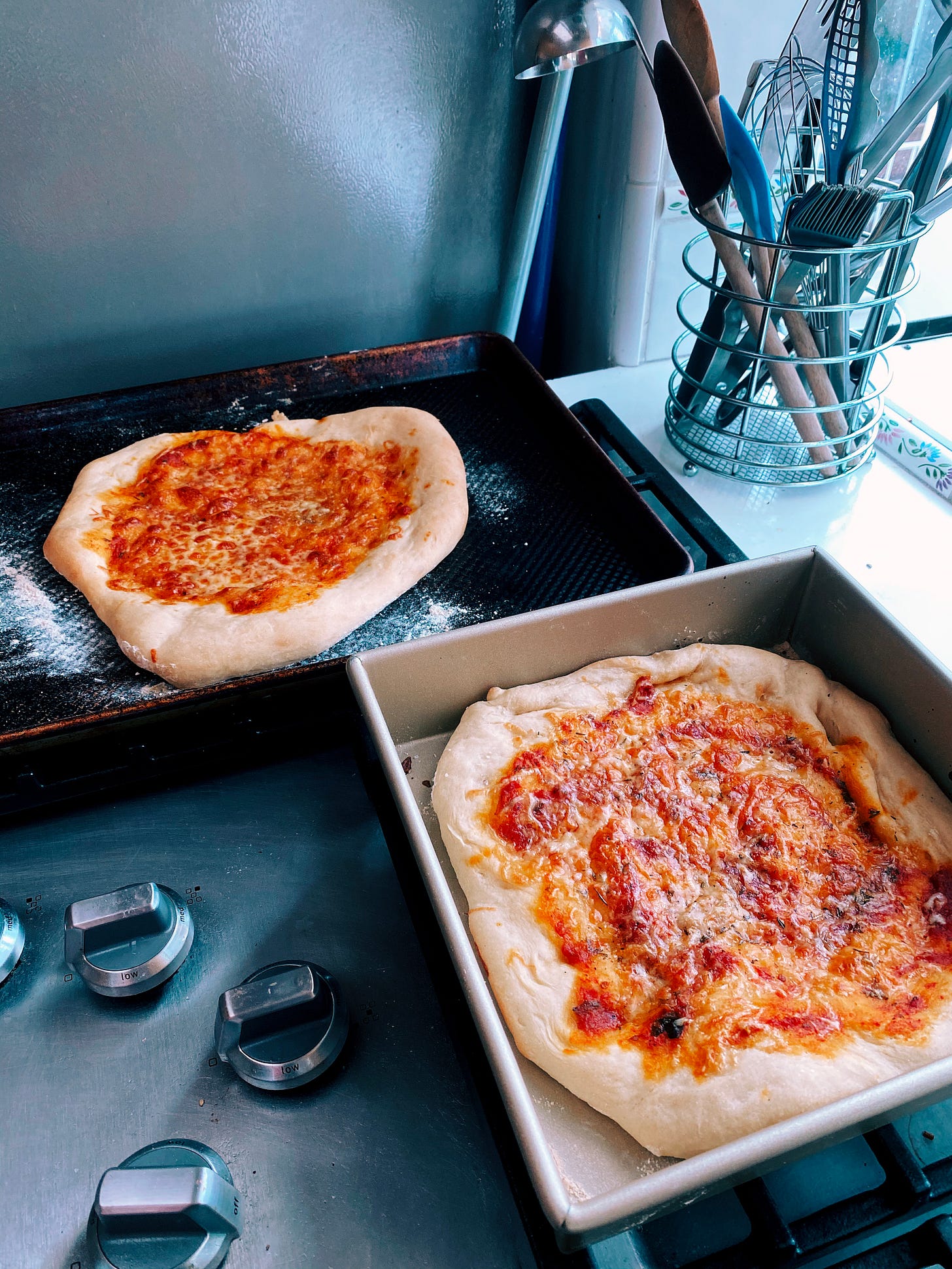
Welcome to the web version of 500 Words, a place for 500-word essays and creative risks. I’m posting about what happens as we slowly accept the impossible. When you see posts that are numbered, they are part of a series. To receive the posts in order as they come out, just click the button below. You’ll receive 500 words of short-form goodness in your inbox once a week.
Where has all the flour gone? The supermarket shelves are bare. No Mrs. Meyer’s cleaning products. No Formula 409. No napkins. I figured there would always be toilet paper. But people are at home, buying and using toilet paper made for home use, and not going to work, not using the toilet paper made for offices (yes, there are two different kinds) so we have ourselves a shortage. Olive oil. Butter. Cat food. Gone.
The thing is, to zero in on the problem, we want pizza.
The kind of flour that’s made in big factories and comes in little bags has been bought up by people frantically making snickerdoodles. But when we are home schooling, my wife and I must seek relief from the pressure of speaking all day in a calm voice. I don’t know where teachers get those calm voices, but there is only so much a glass of pinot grigio can do. There are times you just need pizza and you need to make it yourself.
I Googled “where to buy flour” and found small mills, family run for generations, working to keep up with demand.
Hayden Mills in Queen Creek, Arizona sent me a bag of fresh white flour that is in the process of becoming sourdough. They make a pizza flour that my youngest son says makes pizza almost as good as the place on the corner. (This is high praise.) Castle Hill Mills, in Doylestown, PA, sent me ground oats that are turning into granola, and fresh cornmeal that has become lemon cake. Otto’s sent me two pounds of cassava flour.
Supporting regional businesses means Amazon doesn’t ship anything, so Jeff Bezos doesn’t get richer each time I make another pizza. Buying local has greater meaning now. I can look across the street and see the restaurants that may go out of business. We all can help them by ordering for pick up. There’s a new national directory that lists restaurants that are open for pickup and delivery. Yesterday, I interviewed the co-founder for a podcast.
Somehow, I’d become a slave to the industrial baking complex. But even that bondage can be broken. In this time when Mrs. Meyers is a more important woman in our household than Oprah, the pandemic has taught me what a supply chain is.
You’ve probably read about farms throwing out thousands of gallons of milk and letting mountains of potatoes rot. Because people aren’t eating out, big farms don’t know how to deal with all they’ve produced and they don’t know how to package up their goods for small buyers. But family-run bread mills already know how to survive by doing the small-batch thing because that’s what they’ve been doing all along.
Amid uncertainty, baking is necessary. Working flour into dough tethers you to time and place. You have to give your bread 100 percent attention, which is valuable when you can’t remember what day it is.
A listing of local flour mills from Amy Halloran.


